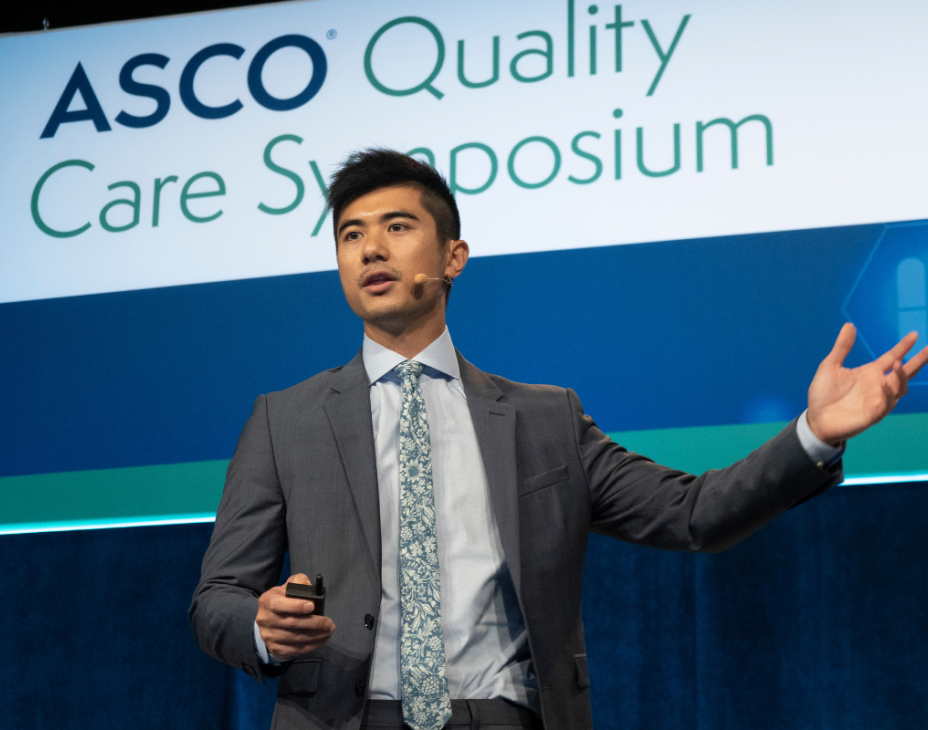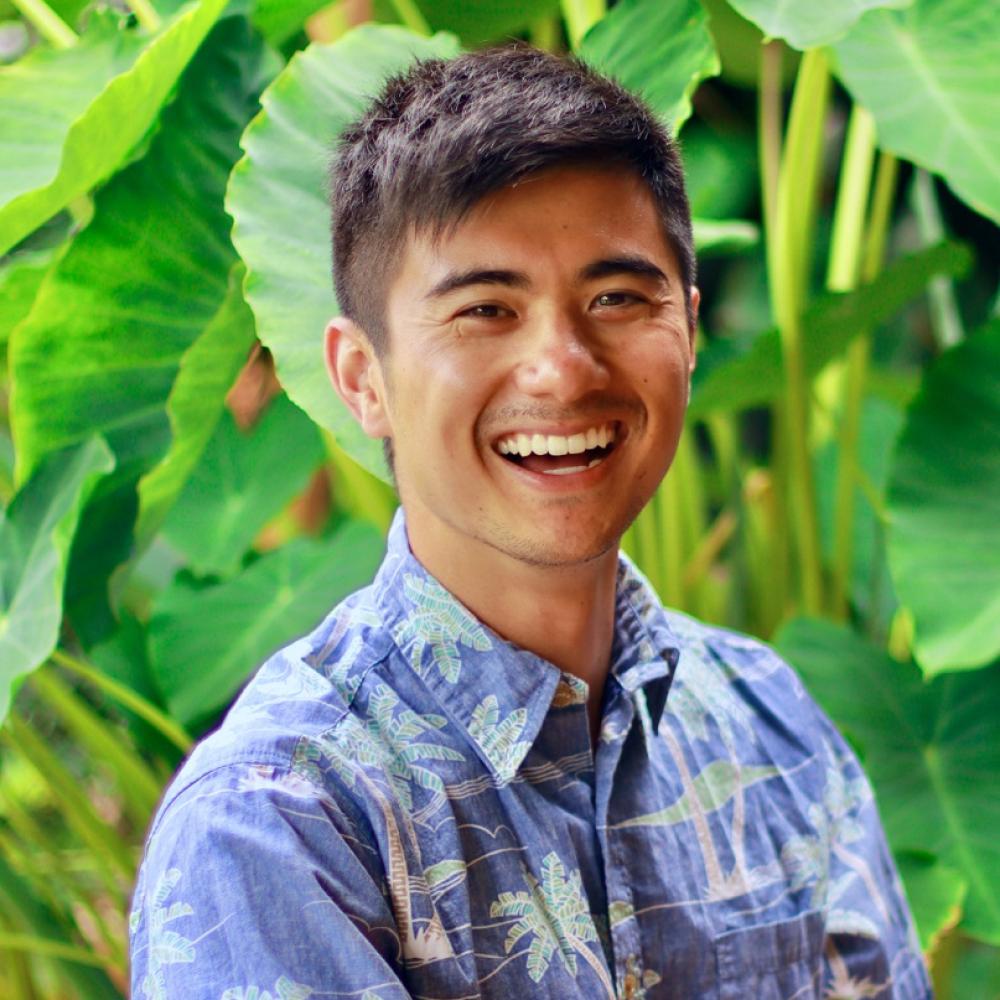These researchers have dedicated their careers to finding new treatments and cures for people with cancer.

NHPI communities have some of the lowest rates of inclusion in clinical trials and cancer research. Consequently, there’s often too little cancer data about these patients, leading to poorer health outcomes and fewer support resources.
“Our stories and data are often overshadowed, affecting public policy, federal funding, and access to resources aimed at improving these disparities,” says Kekoa Taparra, MD, PhD, of Stanford University.
For Dr. Taparra, advancing research equity and improving cancer prevention for NHPI communities are more than academic pursuits: They are profoundly personal. Born and raised on Oʻahu, Hawaiʻi, Dr. Taparra is dedicated to cancer disparities research—a commitment deeply entwined with his Native Hawaiian identity and the lived experiences of his family.
“I carry vivid memories of my younger cousin, frail and weakened by neuroblastoma treatment; of my mother, carrying my cachectic aunty who was dying of breast cancer; and of the anguished cries from another aunty, suffering from endometrial cancer, that filled our home and left an indelible mark on our family,” Dr. Taparra recalls. “This trauma is not unique to my ʻohana (family) but is a common experience for many Native Hawaiians in my community. As the first Kanaka ʻŌiwi (Native Hawaiian) physician-scientist seen in my community, I am both humbled and driven by a profound sense of kuleana (responsibility) to address the unique health disparities that plague the NHPI community, including my own ʻohana.”
According to the 2020 U.S. Census, many NHPI families are leaving Hawaiʻi for the continental U.S. This geographic shift, Dr. Taparra explains, is caused by a high cost of living and scarce financial support for local and Indigenous communities. Such trends reflect the urgent need for research focused on NHPI cancer disparities.
“There is more work to be done specifically looking at these patterns, which will ultimately illuminate where Pacific Islander health resources could be best directed in the future,” Dr. Taparra says.
Addressing Disparities with Artificial Intelligence
Supported by a grant from Conquer Cancer®, the ASCO Foundation, Dr. Taparra launched an ongoing research project that involves using machine learning to investigate the various drivers of NHPI cancer disparities.
The grant enables Dr. Taparra to partner with the University of Hawaiʻi Cancer Center so that he can access an ethnically diverse range of data on populations who have been structurally excluded from clinical cancer research, including NHPI communities.
Dr. Taparra uses an innovative technique known as XGBoosting, which involves computing new models of patient data to prevent and correct errors. This machine learning approach, Dr. Taparra explains, can be used to better navigate the complex and overlooked multiethnic data sets that are often characteristic of NHPI communities.
“This allows us to unmask the intricate layers of health disparities that are otherwise lost in broader categorizations,” Dr. Taparra says.
The Meaningful Impact of Mentorship
Conquer Cancer support enabled Dr. Taparra to connect with key mentors and collaborators*. Such partnerships help Dr. Taparra to enrich his data sets and enhance the robustness of his study to better reflect the communities he hopes to serve.
“I’ve had the privilege to build my own research agenda, one that is deeply rooted in personal and cultural values, and to forge collaborations with esteemed researchers who understand me and share my mission,” Dr. Taparra says.
Together, Dr. Taparra and his research mentors are uncovering significant differences between patients in Hawaiʻi and the continental U.S. Their findings might help to guide policy measures and clinical improvements in cancer prevention and overall survival for NHPI patients.
Understanding these complexities, he continues, could help researchers answer critical questions and determine whether multiracial NHPI data should be gathered into a single category to improve visibility, statistical power, and accuracy.
Our research is not just an academic exercise: It has the potential to guide policy decisions that could significantly improve lives,” Dr. Taparra says. “I am filled with hope and anticipation for what these findings could mean for our community.”
Patient Stories Inform Next Steps
In addition to vivid memories of loved ones with cancer, Dr. Taparra’s experiences with patients also motivate his commitment to research. He recently provided care for a Pacific Islander patient whose circumstances reminded Dr. Taparra of an older relative. Their shared cultural background, he recalls, fostered a unique sense of trust and understanding that enhanced the patient’s overall care.
“My patient’s situation closely mirrored the experiences I observed in my own Native Hawaiian grandfather, making me particularly cautious about his treatment trajectory,” Dr. Taparra says. “This enhanced my patient’s engagement in his healthcare and encouraged him to openly discuss the challenges he faced during cancer treatment, particularly his multiple comorbidities.”
His patient’s heightened involvement resulted in timely interventions that ultimately helped ensure his treatment success.
“Witnessing firsthand how my research positively impacts the holistic care of my patients fills me with a profound sense of purpose, both as a physician and as a member of the NHPI community,” Dr. Taparra says. “Moreover, many of the principles that my team and I are investigating with my Conquer Cancer YIA can be applied to other marginalized populations as well, and future studies may implement our approaches in their work.”
As Dr. Taparra progresses toward completing his residency in radiation oncology, he’s also working to complete his YIA study and hopes to apply these findings toward subsequent clinical projects that include and focus on NHPI patients. Elevating health equity for marginalized populations is at the heart of all he does to conquer cancer.
“Funding and support from ASCO and Conquer Cancer have not only elevated the methodological rigor of my research but have also lent a sense of true urgency and credibility to the often-overlooked issue of NHPI health disparities,” Dr. Taparra says. “I am deeply grateful for this support, as it amplifies the impact of our work and brings us closer to achieving health equity for NHPI communities.”
*Conquer Cancer support helped to connect Dr. Taparra with various mentors and collaborators who have guided his professional development and cancer research. He would like to thank Loïc Le Marchand, MD, PhD; Naoto Ueno, MD, PhD; Manali Patel, MD, MPH; Erqi Pollom, MD; Jacqueline B. Vo, PhD, RN, MPH; and Jaimie Shing, PhD, MPH.
